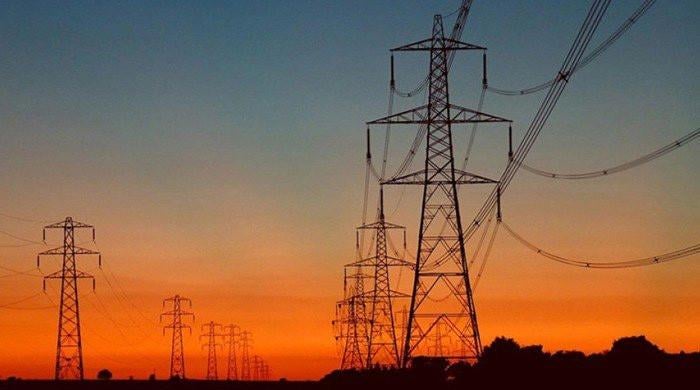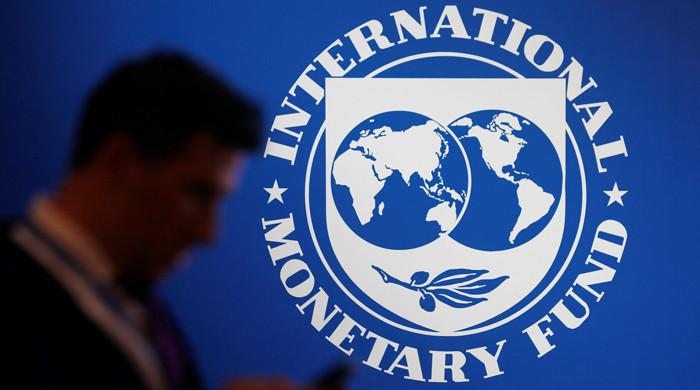Govt report reveals SOEs accumulated losses of Rs5.9tr since 2014
State of business planning across various SOEs presents range of challenges in Discos, NTDC, Gencos
December 28, 2024

ISLAMABAD: The government's bi-annual report regarding state-owned enterprises (SOEs) has revealed that the accumulated losses of several of these entities since 2014 stand at a whopping Rs5.9 trillion, The News reported on Saturday.
The report, aimed at complying with the International Monetary Fund (IMF) programme, disclosed that several SOEs incurred significant losses during the first six months of FY2024.
The largest loss was reported by the National Highway Authority (NHA) at Rs151.3 billion, followed by Qesco with Rs56.2 billion and Rs51.7 billion of the Pakistan International Airlines (PIA).
Other notable entities with significant losses included Pesco, which reported a loss of Rs39 billion, and Pakistan Railways, which reported a loss of Rs23.6 billion. Additional SOEs such as Sukkur Electric Supply Company (Sepco), Pakistan Steel Mills Corporation (Private) Limited, and Islamabad Electric Supply Company (Iesco) also reported considerable losses of Rs20.9 billion, Rs14.4 billion and Rs12.1 billion, respectively.
The Central Power Generation Company Limited (Genco-II) reported a loss of Rs8.3 billion. Other loss-making entities include Pakistan Telecommunication Company Limited (PTCL) Rs7.7 billion, Pakistan Post Office Rs5.5 billion and several electric supply companies like Hyderabad Electric Supply Company (Hesco) Rs5.2 billion, Tribal Areas Electric Supply Company (Tesco) Rs2.6 billion followed by SSGPL Rs4.6 billion and USC Rs2.1 billion loss contributed to cumulative losses, illustrating widespread inefficiencies and operational challenges within the SOE sector.
The top 15 profit-making entities for the six months of July-December 2023 demonstrated strong financial performance, with Oil and Gas Development Company Limited (OGDCL) leading with a profit of Rs123.2 billion, followed by Pakistan Petroleum Limited (PPL) with Rs68.7 billion, and National Power Parks Management with Rs36.2 billion. Other significant contributors include Pak-Arab Refinery Company (Parco) with Rs35 billion and Government Holdings (Private) Limited with Rs32.5 billion. Additional profitable entities include the National Bank of Pakistan (NBP) with Rs26.6 billion and the Port Qasim Authority with Rs18.4 billion. However, despite these accounting profits, free cash flow remains low and WACC remains high.
On the power sector, the report says that the state of business planning across various SOEs presents a range of challenges, particularly in Distribution Companies (Discos), National Transmission and Despatch Company (NTDC) and Generation Companies (Gencos).
Each of these entities is faced with unique issues tied to ineffective loss reduction strategies, outdated infrastructure, inefficient debt management and working capital lockups. Addressing these issues requires a blend of strategic, financial and operational reforms to stabilise the sector and improve its overall efficiency and sustainability.
In Discos, the financial implications of these losses are severe. Over the course of just six months, the average cost of this lost electricity amounts to approximately Rs140 billion, which directly impacts the operational liquidity and profitability of these companies.
This gap between the cost of electricity procured and the revenue generated from its sale places immense pressure on the already constrained financial resources of Discos.
Additionally, because these losses are not recovered through billing, they further widen the revenue deficit in an industry that is already struggling with circular debt.
Discos across Pakistan have been struggling with severe transmission and distribution losses, averaging 10 to 15% of the electricity units they purchase from the Central Power Purchasing Agency (CPPA) via the NTDC. This means that for every 100 units of electricity purchased, Discos are only able to sell approximately 85 units, while the remaining 10-15 units are lost due to a combination of theft, technical inefficiencies and poor management.
These distribution losses represent a significant financial burden on Discos, further amplified by their already fragile financial positions.
The NTDC has lagged significantly in upgrading its infrastructure, which is pivotal for ensuring a reliable power transmission network.
Current business plans fail to provide detailed strategies for infrastructure enhancement, leading to frequent grid failures, high transmission losses, and significant delays in project completion.
These project delays not only hamper the company’s ability to meet critical deadlines but also result in cost overruns, reduced investor confidence, and increased pressure on the entire power supply chain.
Consequently, the overall reliability and stability of the national grid remain compromised, impacting economic growth and development across various sectors reliant on consistent power supply. NTDC’s failure to upgrade infrastructure and manage project delays effectively has a cascading effect on Pakistan’s energy sector, contributing to power shortages and higher operational costs.











